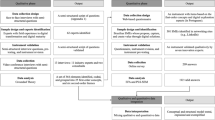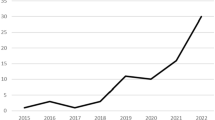Abstract
The country’s achievement of the state of the knowledge economy is determined by the effectiveness of knowledge management processes, which on the other hand has a decisive for ensuring the competitiveness and enterprises’ financial and economic success of any field of activity and ownership. The main carrier of knowledge is a person who during life gradually passes through various stages of the life cycle and development, each of which has its own peculiarities of their accumulation and using. The activation of these processes for Ukraine is of paramount importance because of the rather high human potential and the unsatisfactory level of its use—in recent years because of the sociopolitical crisis has a negative trend of change. The research is characterized by patterns of accumulation of knowledge during a person’s life with the concretization at each stage of the probable correlation of the volumes of knowledge, the main factors of their acquisition or the preservation of the directions for their change. The concrete strategic decisions that should be adopted at the enterprise with the purpose of activating the processes of knowledge management taking into account the formulated regularities were justified. Orientation of the company’s management to the maximum coverage of all stages of the life cycle of a person is the basis for attracting or education talents and creating an innovative leap on this basis.


Similar content being viewed by others
References
Abu Zar Wajidi, M., & Asim, M. (2009). The realms of knowledge management from an organizational perspective. International Business & Economics Research Journal, 8(/11), 121–132.
Audretsch, D. B., & Feldman, M. P. (1996). Innovative clusters and the industry life cycle. Review of Industrial Organization, 11(2), 253–273.
Bhullar, P. S., & Kaur, S. (2014). Analysis of role of knowledge management in economic growth. International Journal of Emerging Research in Management &Technology, 3(/5), 29–33.
Bitkowska, A. (2016). Knowledge management vs business process management in contemporary enterprises. Economics and Management, 8(2), 31–37. https://doi.org/10.1515/emj-2016-0014.
Boljanović, J. Đ., & Stanković, J. (2012). The role of knowledge management in building client relationships. Singidunum journal, 9(1), 16–28.
Brockmann, C., Roztocki, N. (2015) Topics on knowledge management: an empirical insight into articles published in the International Journal of Knowledge Management. Hawaii International Conference on System Sciences, 48th, 3834–3840. https://doi.org/10.1109/HICSS.2015.460.
Caputo, F. (2017). Reflecting upon knowledge management studies: insights from systems thinking. International Journal of Knowledge Management studies, 8(3/4), 177–190.
Caputo, F., Evangelista, F., Perko, I., & Russo, G. (2017). The role of big data in value co-creation for the knowledge economy. In S. Vrontis, T. Weber, & E. Tsoukatos (Eds.), Global and national business theories and practice: bridging the past with the future (pp. 287–298). Cyprus: EuroMed Pres.
Carlile, P. R., & Rebentisch, E. S. (2003). Into the black box: the knowledge transformation cycle. Management Science, 49(9), 1180–1195.
Cristea, D., Capatina, A. (2010). Knowledge economy and the necessity of knowledge management. The annals of «Dunarea de Jos» University of Galati. Fascicle I. Economics and Applied Informatics. XVI, 1, 181–188.
Di Nauta, P., Merola, B., Caputo, F., & Evangelista, F. (2015). Reflections on the role of university to face the challenges of knowledge society for the local economic development. Journal of Knowledge Economy, 1–19. https://doi.org/10.1007/s13132-015-0333-9.
Dincă, V. M. (2013). Knowledge management and economic intelligence in Japan. The International Journal of Management Science and Information Technology. Iss., 9, 55–70.
Giju, G. C., Badea, L., López Ruiz, V. R., & Nevado Peña, D. (2010). Knowledge management—the key resource in the knowledge economy. Theoretical and Applied Economics, XVII, 6(547), 27–36.
Gonzalez, R. V. D., & Martins, M. F. (2014). Knowledge management: an analysis from the organizational development. Journal Technology Management & Innovation, 9(1), 131–147.
Goodman, N. R. (2014). Knowledge management in a global enterprise. Resource document. Association for Talent Devolopment. https://www.td.org/Publications/Magazines/TD/TD-Archive/2014/12/ Knowledge-Management-in-a-Global-Enterprise. Accessed 10 June 2017.
Graham, I. D., Logan, J., Harrison, M. B., Straus, S. E., Tetroe, J., Caswell, W., & Robinson, N. (2006). Lost in knowledge translation: time for a map? Journal of Continuing Education in the Health Professions, 26(1), 13–24.
Know how (2005). Managing knowledge for competitive advantage. An Economist Intelligence Unit white paper sponsored by Tata Consultancy Services. The Economist Intelligence Unit. http://graphics.eiu.com/files/ad_pdfs/tata_knowhow_wp.pdf. Accessed 24 June 2017.
Kahreh, M. S. (2011). Economics of strategic knowledge management: a new model for assessment. International Journal of Trade, Economics and Finance, 2(№3), 257–262.
Krstić, B., & Petrović, B. (2012). The role of knowledge management in increasing enterprises innovativeness. Economics and Organization, 9(1), 93–110.
Kumar, K.J. (2014) De-mystifying enterprise knowledge management. Association for Infosys-Oracle Blog. http://www.infosysblogs.com/oracle/2014/05/de-mystifying_enterprise_knowl.html. Accessed 11 June 2017.
Laia, Y.-L., & Lin, F.-J. (2012). The effects of knowledge management and technology innovation on new product development performance (an empirical study of taiwanese machine tools industry). Procedia – Social and Behavioral Sciences, 40, 157–164. https://doi.org/10.1016/j.sbspro.2012.03.176.
McKeen, J.D., Zack, M.H., Singh, S. (2006) Knowledge management and organizational performance: an exploratory survey. Proceedings of the 39th Hawaii International Conference on System Sciences https://www.computer.org/csdl/proceedings/hicss/2006/2507/07/250770152b.pdf. Accessed 21 June 2017.
Nawaz, M. S., Hassan, M., & Shaukat, S. (2014). Impact of knowledge management practices on firm performance: testing the mediation role of innovation in the manufacturing sector of Pakistan. Pakistan Journal of Commerce and Social Sciences, 8, 99–111.
NKMZ. Novokramatorsky Mashinostroitelny Zavod. Private Joint Stock Company. Available at http://www.nkmz.com/index.php?id=2&id=2&L=1 Accessed 14 Fef 2018.
Olkiewiczl, М. (2015). Knowledge management as a determinant of innovation in enterprises. Proceedings of the 9th International management conference «Management and Innovation For Competitive Advantage», November 5th–6th, Bucharest, Romania, 399–409.
Omotayo, F.O. (2015). Knowledge management as an important tool in organisational management: a review of literature. Library Philosophy and Practice (e-journal). Paper 1238. http://digitalcommons.unl.edu/libphilprac/1238. Accessed 23 June 2017.
Rowley, J. (2001). Knowledge management in pursuit of learning: the learning with knowledge cycle. Journal of Information Science, 27(4), 227–237.
Saviano, M., Caputo, F. (2013). Managerial choices between systems, knowledge and viability. In Barile S. (ed.), Contributions to theoretical and practical advances in management. A Viable Systems Approach (VSA), ARACNE Editrice S.r.l., Roma, pp. 219–242.
Sedziuviene, N., & Vveinhardt, J. (2010). Competitiveness and innovations: role of knowledge management at a knowledge organization. Inzinerine Ekonomika-Engineering Economics, 21(5), 525–536.
State Statistics Service of Ukraine. (2018) Available at http://www.ukrstat.gov.ua Accessed 12 Fef 2018.
Sultan, A., & Bach, C. (2015). Knowledge management readiness in organizations. International journal of scientific & technology research, 4(/6), 99–102.
Szakály, D. (2002). Knowledge management strategies. Club of Economics in Miskolc, 1, 51–58.
Torabia, M. H. R., Kyanib, A., & Falakiniac, H. (2016). An investigation of the impact of knowledge management on human resource performance in management of Keshavarzi bank branches in Tehran. Procedia – Social and Behavioral Sciences, 230, 471–481. https://doi.org/10.1016/j.sbspro.2016.09.059.
Trinkuniene, E., & Trinkunas, V. (2014). Knowledge management in composition of construction contracts. Entrepreneurial Business and Economics Review, 2(4), 101–112. https://doi.org/10.15678/EBER.2014.020407.
Valdez-Juárez, L. E., García-Pérez de Lema, D., & Maldonado-Guzmán, G. (2016). Management of knowledge, innovation and performance in SMEs. Interdisciplinary Journal of Information, Knowledge, and Management, 11, 141–176 http://www.informingscience.org/Publications/3455. Accessed 21 June 2017.
Vidović, M. (2010). The link between the quality of knowledge management and financial performance—the case of Croatia. University of Zagreb. FEB – Working Paper Series, 10–03.
Zakharova, О., & Kratt, O. (2014). Economic study and risk estime of the investment in the human capital. Economics & Sociology, 7(2), 94–108. https://doi.org/10.14254/2071-789X.2014/7-2/8.
Author information
Authors and Affiliations
Corresponding author
Rights and permissions
About this article
Cite this article
Oksana, Z. Specificity of Knowledge Management in the Enterprise in Dependence on the Stage of the Person’s Life Cycle. J Knowl Econ 10, 1447–1465 (2019). https://doi.org/10.1007/s13132-018-0550-0
Received:
Accepted:
Published:
Issue Date:
DOI: https://doi.org/10.1007/s13132-018-0550-0
Keywords
- Knowledge management
- Enterprise
- Staff
- Person
- Stage of human life cycle
- Age
- Professional development
- Knowledge economy
- Human capital




